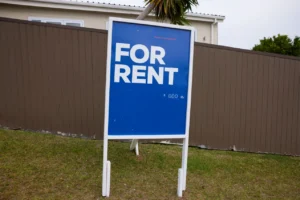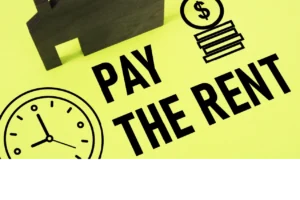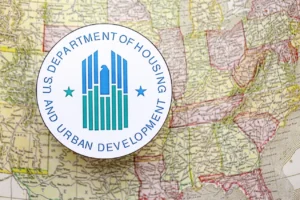How Much Can a Landlord Increase Rent By? Discover the Legal Limits
 A landlord can increase rent by up to a certain percentage or amount specified by local rent control laws. Rent increases are subject to local rent control laws which dictate the maximum percentage or amount by which a landlord can raise the rent.
A landlord can increase rent by up to a certain percentage or amount specified by local rent control laws. Rent increases are subject to local rent control laws which dictate the maximum percentage or amount by which a landlord can raise the rent.
These laws vary depending on the jurisdiction and can range anywhere from a few percentage points to a specific dollar amount.
Rent control regulations seek to prevent excessive rent hikes and protect tenants from unreasonable increases.
Landlords must familiarize themselves with the specific rent control laws in their area and adhere to the allowed increase limits.
Failure to comply with these laws may result in legal consequences for landlords.
Rent Control Laws
One of the most critical aspects of being a landlord is understanding the different laws and regulations that govern the rental market.
Rent control laws, in particular, play a significant role in determining how much a landlord can increase rent by.
Let’s delve into the nitty-gritty of rent control laws and explore their impact on landlords and tenants.
Definition Of Rent Control
Rent control refers to the government-enforced policies and regulations that limit the amount of rent a landlord can charge to tenants.
These regulations are implemented to prevent landlords from significantly raising rent prices, thus ensuring that housing remains affordable for the general population.
Rent Control Laws In Different Regions
Rent control laws vary across different regions, and it’s essential for landlords to familiarize themselves with the specific regulations in their area.
To provide a broad understanding, let’s take a look at the rent control laws in a few prominent regions:
New York City, New York
New York City imposes strict rent control regulations, primarily through its Rent Stabilization Program (RSP). Under this program, landlords are subject to predetermined rent increases and are required to comply with specific guidelines when raising rent.
The Rent Guidelines Board sets annual percentage increases, taking factors such as maintenance costs and economic conditions into account.
San Francisco, California
San Francisco has some of the most comprehensive rent control laws in the United States.
The city’s Rent Ordinance restricts rent increases on certain residential units built before June 1979.
Landlords must follow the Rent Board’s regulations, which typically limit annual rent hikes to a set percentage determined each year.
It’s crucial for landlords to stay updated with any changes in rent control laws in their specific region to ensure they comply with the regulations and avoid penalties.
Understanding these laws not only safeguards the interests of tenants but also enables landlords to navigate the rental market more effectively.
Factors Influencing Rent Increases
As a landlord, determining how much to increase the rent can be a delicate balancing act.
It is crucial to strike a fair and competitive price that aligns with market conditions and reflects the property’s value.
Several factors come into play when deciding the appropriate percentage for rent increases.
By considering market conditions and demand for rentals, property maintenance, and improvement costs, as well as economic factors impacting rental prices, landlords can make informed decisions without alienating their tenants.
Market Conditions And Demand For Rentals
The rental market is constantly evolving, influenced by factors such as location, population growth, and economic stability.
Landlords must stay aware of these market conditions to determine a reasonable rent increase.
Property Maintenance And Improvement Costs
Maintaining a rental property is an ongoing responsibility that landlords must consider when deciding on rent increases.
Oftentimes, property maintenance expenses rise over time. Repairs, renovations, and general upkeep can increase operational costs, and these expenses may need to be factored into the rental pricing.
Additionally, improvements made to the property, such as upgraded appliances or enhanced amenities, can justify higher rental rates.
By providing well-maintained and attractive properties, landlords can justify rent increases to tenants, who will appreciate the added value they receive in return.
Economic Factors Impacting Rental Prices
Rental prices are not immune to broader economic factors that influence the cost of living. Inflation, changes in interest rates, and shifts in the job market can all impact rental prices.
If the cost of goods and services increases, landlords may need to adjust rents to cover rising expenses.
Similarly, economic growth and increased job opportunities can potentially drive up demand for rentals, giving landlords better leverage when determining rent increases.
It is essential for landlords to stay attuned to economic indicators and consider how these factors impact the rental market in their specific area.
Legal Limits On Rent Increases
Rent increases by landlords are subject to legal limits, depending on the jurisdiction.
These limits vary, with some areas allowing annual increases based on a specific percentage, while others require specific notice periods and justifications for rent hikes.
It is important for landlords to understand and abide by these regulations to avoid legal complications.
Statutory Limits On Rent Increases
When it comes to renting a property, one of the most important considerations for tenants is how much their rent could increase over time.
Luckily, there are legal limits in place that protect tenants from exorbitant rent hikes.
These limits vary by location, so it’s essential to check the laws specific to your area.
In general, statutory limits on rent increases aim to strike a balance between allowing landlords to earn a fair return on their investment and safeguarding tenants against unfair rental prices.
As an illustration, let’s take a look at an example scenario in San Francisco, California.
In this city, rent stabilization laws dictate that landlords can only increase rent by a maximum of X% per year.
This helps ensure that tenants are not faced with sudden, unaffordable rent increases that could leave them struggling to make ends meet.
Exceptions To Rent Increase Limits
While statutory limits on rent increases provide crucial protection for tenants, it’s essential to be aware of the exceptions that may exist.
Landlords may be able to increase rent beyond the statutory limits in certain situations, such as when they make significant improvements to the property or when the rental unit falls under specific exemptions.
It’s crucial for both landlords and tenants to familiarize themselves with the specific exceptions in their local jurisdiction.
This knowledge can prevent misunderstandings and help ensure compliance with the law.
Eviction Protections Related To Rent Increases
Eviction protections are an integral part of the framework that governs rent increases.
In many jurisdictions, landlords are prohibited from using rent increases as a means to force tenants out of their rental units unjustly.
These eviction protections aim to provide tenants with stability and prevent them from being displaced due to unaffordable rent hikes.
For example, some laws require landlords to provide a substantial notice period before implementing a rent increase.
This notice period gives tenants the opportunity to evaluate their options, negotiate with their landlord, or seek alternative housing if necessary.
Moreover, in some cases, landlords may be required to provide a valid reason for raising the rent.
This provision helps prevent arbitrary rent increases and further safeguards tenants from potential exploitation.
By understanding these eviction protections, tenants can exercise their rights and take action if they believe their landlord is unfairly using rent increases as a means of eviction.
Tenant Rights And Protections
Notice Requirements For Rent Increases
When it comes to increasing the rent, landlords need to adhere to specific notice requirements to ensure transparency and fairness to their tenants.
According to the law, landlords must provide written notice to their tenants regarding any rent increase within a certain timeframe. This allows tenants sufficient time to adjust their budgets and plan accordingly.
Legal Recourse For Excessive Rent Increases
Tenants have legal recourse when faced with excessive rent increases that go beyond what is deemed reasonable.
If a landlord seeks to increase the rent by a significant amount that is considered unjust, tenants can challenge the increase by filing a complaint with the local housing authority or seeking legal advice.
In some cases, rent control laws may limit the amount a landlord can increase the rent annually.
Prohibited Retaliatory Actions By The Landlord
Tenant protection laws prohibit landlords from taking retaliatory actions against tenants who exercise their rights or assert their grievances regarding rent increases.
Landlords are not allowed to evict, harass, or penalize tenants who challenge rent increases or report violations. Such retaliatory actions are illegal and can have severe consequences for landlords.
Navigating The Rent Increase Process
As a landlord, it’s important to stay informed about the regulations and best practices surrounding rent increases.
Whether you need to adjust the rent to keep up with market rates or cover rising expenses, navigating the rent increase process requires clear communication with your tenants and adherence to legal requirements.
Communicating With Tenants About Rent Increases
When it comes to informing your tenants about a rent increase, it’s crucial to maintain open, transparent communication.
Keeping your tenants in the loop helps foster a positive landlord-tenant relationship and minimizes misunderstandings. Here are some important tips to consider:
- Before increasing the rent, ensure that you are giving your tenants enough notice as required by law, typically 30 to 60 days in advance.
- Craft a formal rent increase notification letter to clearly outline the upcoming change. Be sure to include the effective date of the rent increase, the new rental amount, and any additional details such as the reason for the increase.
- Although you may not be obligated to provide a reason for the rent increase, it can be helpful to briefly explain the factors contributing to the adjustment. This can help tenants understand your decision and minimize any negative feelings.
- Encourage your tenants to voice any concerns or questions they may have about the rent increase. Being open to discussion can help address any misunderstandings and maintain a harmonious landlord-tenant relationship.
Documenting Rent Increase Notifications
When it comes to documenting rent increase notifications, it’s essential to keep clear records.
Proper documentation not only helps avoid disputes but also ensures compliance with legal requirements. Here are some key steps to follow:
- Always send rent increase notifications in writing and keep a copy for your records. These documents that you provided proper notice to your tenants.
- Your rent increase notification should include the date, the tenant’s name, the property address, the current rent amount, the new rent amount, and the effective date of the increase.
- Maintain a record of how you delivered the rent increase notification, whether it was via mail, email, or in person. This helps demonstrate that the notification was properly delivered.
- Whenever possible, ask your tenants to sign and return a copy of the rent increase notification. This serves as proof that they received and acknowledged the notice.
- Store all rent increase notifications and related documentation in a secure and organized manner. This allows for easy access should any disputes arise in the future.
Ensuring Compliance With Legal Requirements
Complying with legal requirements is essential when navigating the rent increase process.
By staying informed about relevant laws and regulations, you can ensure that your rent increases are within the confines of the law. Here are some crucial considerations:
- Research and understand the specific rent control laws and regulations in your local area. These laws may dictate the maximum allowable rent increase percentage or require additional documentation.
- If you are unsure about legal requirements or face unique circumstances, it is wise to consult with a real estate attorney or other legal professionals who specialize in landlord-tenant law. They can provide guidance and ensure compliance with local regulations.
- Keep yourself updated on any changes to the laws or regulations regarding rent increases. Being aware of new requirements or restrictions can help you make informed decisions while staying in compliance.
Navigating the rent increase process requires effective communication, proper documentation, and adherence to legal requirements.
By following these guidelines and maintaining a proactive approach, you can ensure a smoother and more transparent process for both you and your tenants.
Conclusion
As a landlord, it’s essential to understand the guidelines around increasing rent.
By abiding by local laws and regulations, you can ensure fairness and transparency in the process.
Consulting a legal professional and keeping open lines of communication with your tenants are crucial steps.
Remember, setting the right rental price can help maintain a positive landlord-tenant relationship and secure steady rental income for the long term.
Stay informed, be knowledgeable, and navigate the subject of rent increases with ease!













 Accessibility
Accessibility